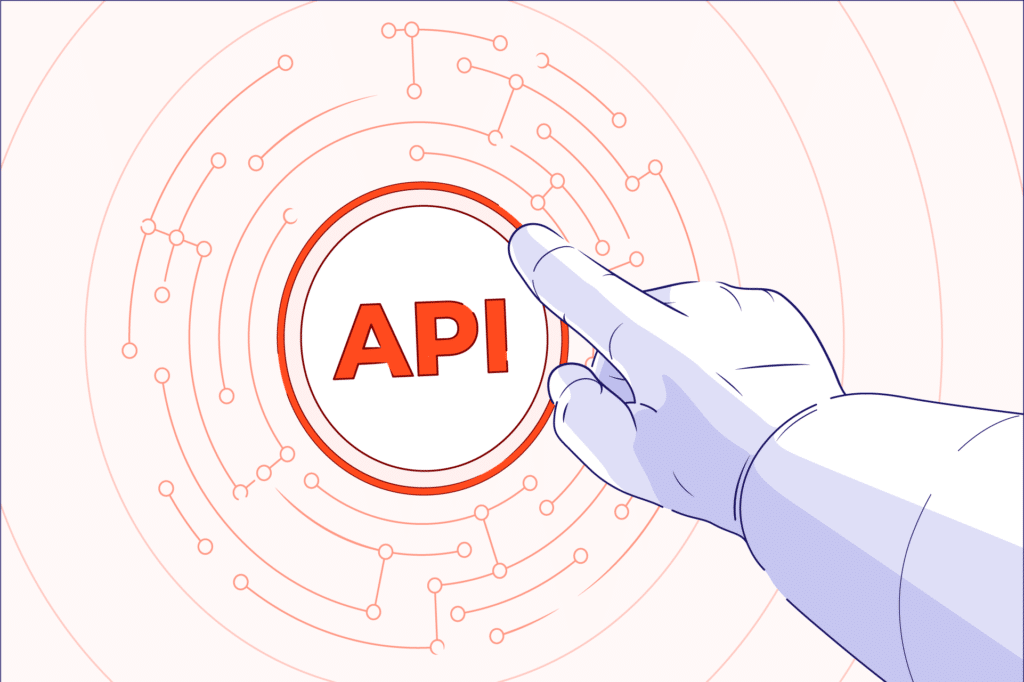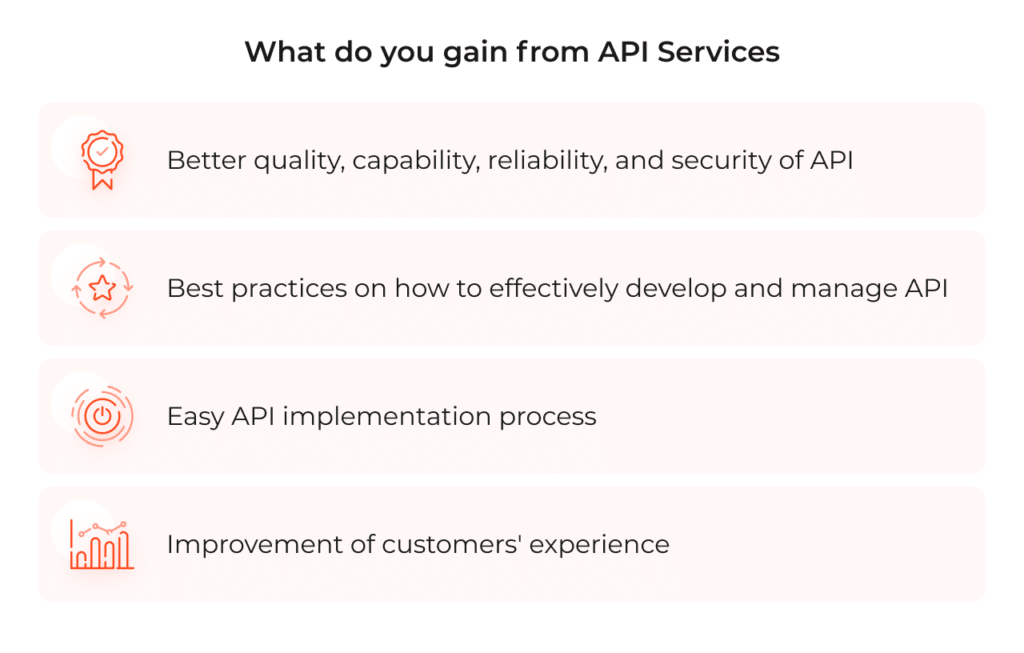API services – short guide for beginners

How to make the most of your API? The maintenance takes time and effort. After all, they are the doors, they give access to your business’ nervous system. But are you taking a good care of it, how often do you visit your APIs doctor? You wouldn’t just let anyone operate on your business brain, would you? Even the best prepared Interface will not work well if we don’t take care of management. API services come to the rescue, which will help us enter a higher level of management and make it work even more efficiently.
What is API management
API (Application Programming Interface) is a software intermediary that enables the communication between two applications. It delivers the request for the needed information to the application and the response back. If we design new tools or manage the current ones, the API interfaces provide flexibility, simplify the designing process, administration, and utilization. A well-planned API ecosystem gives high comfort of using our services. It also has a positive impact on the creativity of business users.
Do you want to bring your API management to the higher level?
As we said before, the API is a set of definitions and clearly defined methods of communication between different software components. The API can refer to a software module, plug-in, or web project because it specifies the application access protocol. It plays an important role in the functioning of the company, because it is responsible for the reliability of integration between computer hardware, database, and software components. Just as a great interface results in a positive user experience, so a well-prepared API will bring client experience to the higher level.
Importantly, API services allow an application or service to communicate with other applications and services without having to know how to implement them. This makes building apps easier and saves the company time and money. To put it simply, a user of the software can only see its interface. The API is developed to connect different applications and run in the background so that the user won’t have problems in case of a change in the implementation or any functionality.
Benefits of API Services
In addition to the ability to communicate with applications and services without access to how they’re implemented, having a properly implemented API at hand still has many advantages. These include abstraction of functionality, integration, automation possibilities, and business improvement.
Flexibility of solutions
One of the main advantages of APIs is that they allow us to abstract functionality between systems. The API endpoint separates the application from the infrastructure that provides the service. As long as the specification of what the service provider delivers to the endpoint remains unchanged, changes to the infrastructure behind the endpoint won’t be noticed by applications that use this API. Therefore, the service provider has great flexibility when it comes to how to offer its services. For example, if our API infrastructure includes physical servers in our data center, our service provider can easily switch to virtual cloud servers running.
Integration and automation possibilities
APIs simplify and facilitate integration, allowing different programs to reorganize their interconnectedness according to specific needs. This way, we can get better results while reducing development costs. We can also externally integrate applications with third parties to optimize their functionality and improve usability.
Application integration is the foundation of a large part of automation strategies where APIs become essential. Integrations automate manual tasks to generate a smooth and easy transition between connected applications. With process automation and integration, we reduce costs, time, and effort.
Business improvement
APIs are also essential for digital transformation and for creating and developing innovative business models. They underpin the application economy, which can be developed faster, better, and the development process costs less.
APIs also simplify the deployment of new applications, business models, and digital products. They can enable us to effectively complement third-party products or services while improving their growth.
The importance of API management
How much time does our team take to answer customers about our API capabilities on a monthly basis? When was the last time we audited our APIs? Are we monitoring them, and if so, can we track performance throughout the value chain, from the back-end systems all the way to the end users? If an internally-used API is providing extreme value and may be a candidate for externalization, does our organization have the analytics capabilities to recognize the opportunity? Such questions should be asked regularly and, if we can’t answer these questions, we should realize that our business might be missing out on a huge opportunity.
A good API management process helps analyze, develop, secure, and maintain our API. If all activities result in providing all its necessary elements, the end-users will be convinced to use it and ready to pay for it. The importance of API management is truly high because it helps us manage, secure, analyze, and develop our software systems. When thinking about an effective API management, we care about the 3 most important dimensions of the business value of API: security, customer experience, and scalability.
API security
The activities related to API management let us control the security of our API. It’s especially important when our API is available for many users, like internal developers, partner organizations, and clients. API management also helps in assigning and managing user permissions. We should take all the necessary steps to protect sensitive data, ensuring that permissions are properly allocated and managed. Without an API management solution that provides transparency and consistency, security oversight is extremely difficult.
Customer experience
API management helps provide fast implementation of new applications and seamless service across different channels. Thanks to that, our API interfaces will always match up to our clients’ needs and expectations. By creating greater connectivity, organizations across a wide range of industries from healthcare to finance, retail, and more provide a new level of responsiveness and convenience.
Business scalability
When we have a large amount of data and many applications, API management lets us effectively scale up and keep the innovation culture. In addition to the implications for customers, we also need to include business partners and, of course, many internal employees who need to interact regularly with data and applications. Having so many elements to plan, centralize, and connect, we need API management to create and publish new API interfaces efficiently.
How to make the most of our API?
As we said before, the API is a way to communicate an application or program with other entities that doesn’t require knowledge of how to implement data. The API management has a big impact on business-important factors such as customer and user experience, scalability, and security. In addition, skillful API management will provide greater flexibility of solutions, great integration capabilities, and automation of tasks, all of which improve the business processes.
If you want to learn more about API and DevOps process management, check out our website or read more:




